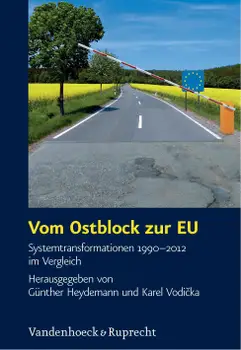In the post-Communist countries of the EU a number of structural parameters have survived the transition that distinguish them from the other, more established democracies of the European Union – as well as from the other nations of the former Eastern Bloc. The authors of this volume address these differences and analyse the political, economic and social transformation processes that took place or are still taking place in this region. It becomes clear what role politics, the economy and society in general now play in these countries, where deficits are still prominent, and what the future holds.
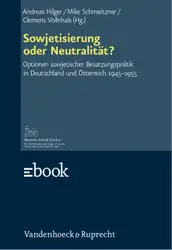
Sowjetisierung oder Neutralität? : Optionen sowjetischer Besatzungspolitik in Deutschland und Österreich 1945–1955
book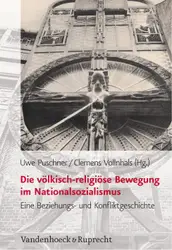
Die völkisch-religiöse Bewegung im Nationalsozialismus : Eine Beziehungs- und Konfliktgeschichte
book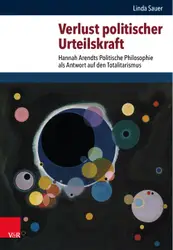
Verlust politischer Urteilskraft : Hannah Arendts Politische Philosophie als Antwort auf den Totalitarismus
Linda Sauer
book
Kontrollierte Kontrolleure : Die Bedeutung der Zollverwaltung für die »politisch-operative Arbeit« des Ministeriums für Staatssicherheit der DDR
Jörn-Michael Goll
book
Strafvollzugspolitik und Haftregime in der SBZ und in der DDR : Sachsen in der Ära Ulbricht
Jörg Müller
book
Ideologie und Moral im Nationalsozialismus
book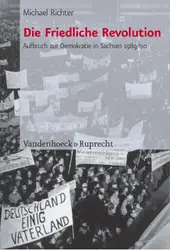
Die Friedliche Revolution : Aufbruch zur Demokratie in Sachsen 1989/90
Michael Richter
book
Planwirtschaft – Privatisierung – Marktwirtschaft : Wirtschaftsordnung und -entwicklung in der SBZ/DDR und den neuen Bundesländern 1945–1994
book
Moralische Ordnungen des Nationalsozialismus
Wolfgang Bialas
book
Von Stalingrad zur SBZ : Sachsen 1943 bis 1949
Mike Schmeitzner, Clemens Vollnhals, Francesca Weil
book
Nach den Diktaturen : Der Umgang mit den Opfern in Europa
book
Sachsen und der Nationalsozialismus
book
